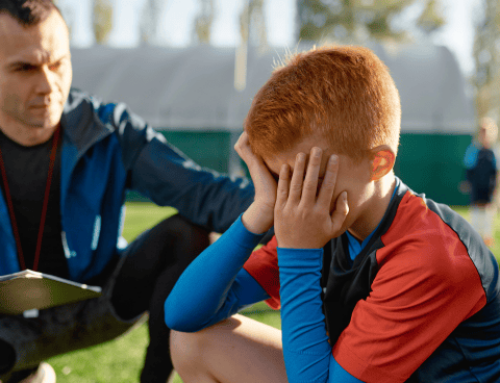How To Avoid Decision Fatigue
Have you ever wandered around the grocery store on a Thursday night after work with children in tow? You are trying to organize something for dinner and want to make the right choice. You look at the 17 types of pasta and nine different types of tinned tomatoes. Then you get to the meat aisle and can’t work out the difference between ‘low-fat’, ‘reduced-fat ‘high-protein and ‘soy-protein minced beef. You end up buying a ready-made lasagne that you can stick in the oven.
You Have Experienced Decision Fatigue
The theory for this condition, or effect, is that after making many difficult and even mundane decisions, your capacity for making decisions depletes over the day. This means that you make quick and hasty decisions that you may later regret or that you postpone important decisions until another time.
Grocery stores have known this for some time, even if psychologists are still researching the effect, and stock their end of shelves and till displays accordingly.
This article will show the importance of automating certain decisions so that willpower is left for the big things in life.

Children Feel Decision Fatigue
Life used to be simpler. You had one thing to eat for breakfast. You had one set of clothes for school (in the UK, school uniforms are mandatory in almost every school, making life a lot easier for everyone). You went to the nearest school and then did whatever sport was offered there. Everyone else did the same.
Now, children are the victims of decision fatigue, just like the rest of us. From the moment they wake up, children making decisions all day, such as
- What do you want to eat for breakfast?
- Cake or fruit for your afternoon snack?
- What shall I wear to school?
And as well as answering 1001 questions from family, teachers, and coaches.
By the time it gets to the evening, their willpower has been reduced, and they end up making the easiest choice: doing nothing! Or watching whatever the streaming service algorithm tells them to watch.
When it comes to making informed, healthy, and responsible choices that will help them at their sport, the children have used valuable willpower. Thanks to social media, they then spend the evening worrying more about what their peers are wearing, eating, and doing.
Parents, teachers, and coaches can be mindful of this and help reduce the number of decisions a child has to make during their day. This does not mean becoming autocratic, but it does mean helping them plan and keep things simple.
4 Ways To Help Your Athlete
Rest
When you are fresh, making a decision is a lot easier. Children today have less sleep and more time ‘tuned-in’ to what their peers are doing. Your teenage daughter may be checking her phone a few times every minute whilst watching a movie on her tablet on her bed. This leaves her physically rested but emotionally and mentally still working overtime. Time off screens and do something that allows thoughts to drift in and out of mind, such as walking the dog or doodling, or reading fiction. Getting the phone out of their hands is difficult as any parent who has asked their teenager to turn off their phone knows. Some rules are easier to enforce: no phones at mealtimes, for example, where conversation can then drift without the child being questioned about their day.
Make Important Decisions First
If you have to choose which college to go to or which set of sneakers, match which set of jeans, you had better sort the college out first. It’s the same with those big homework projects that children procrastinate around. Tackle the harder ones first and then ease downhill through the easier ones. Otherwise, part of your brain is worrying about the gorilla in the homework pile that has yet to be tackled.
If you know that tomorrow is ‘Decision Day’ about college, you can prepare everything else beforehand. Layout your wardrobe, get your breakfast items set up, write down the list of potential colleges in a notebook, and leave it on your desk. You can then get dressed and eat breakfast having made those decisions, and then sit down at the desk to work on the pros and cons of each college with a clear head.
Plan Meals and Snacks
Planning meals should be done in conjunction with the family. Thirty minutes spent each week planning out meals together saves a lot of time and effort later on. You only have to make the food decisions once, buy the food, and everything is sorted. I recommend that athletes set out their training snacks for the week on a Sunday: putting them into little pots if necessary. They only then have to grab them and refill their water bottle every day. The decision is automated.
Planning meals and snacks helps everyone in the family, and if done at the weekend, can get input and commitment from all members to help prepare the food or a meal at some stage. This makes healthier eating choices easier. If you see a day in the week that looks like a logistical nightmare, you can plan a cheat meal or takeout on that day: it’s part of the plan rather than a reaction to being exhausted.
Simplify the Wardrobe
Easy for a 51-year-old man to say, harder for a teenager to live by. I mentioned school uniforms earlier as the best example of this. I always but two sets of trousers or five sets of underpants and socks at a time. If a pair of training shoes fits and is comfortable, I order a spare pair to keep in my wardrobe. The shoe companies keep changing their models every year, and I loathe trying to find a pair that feels as good each year. Cost is an issue here, and you can’t do that with children growing rapidly. But the principle is there to remove having to make decisions more than once about clothes.
In the UK, we are experts at packing all clothes for all weather conditions because we get rain, sun, hot and cold all on the same day! Otherwise, sort out the clothes you need for the week and make sure that you have them washed and dried at the weekend. This will save thousands of arguments across the nation every morning when children don’t shout out, ‘Mom, where’s my stripey leggings.’
Summary
This article may sound like you should remove all the fun and spontaneity from life. It is not. You are removing the mundane decision-making from the day. That allows you and your child to have the brain capacity for the important things in life, including fun.
RECOMMENDED FOR YOU
MOST POPULAR
How To Avoid Decision Fatigue
Have you ever wandered around the grocery store on a Thursday night after work with children in tow? You are trying to organize something for dinner and want to make the right choice. You look at the 17 types of pasta and nine different types of tinned tomatoes. Then you get to the meat aisle and can’t work out the difference between ‘low-fat’, ‘reduced-fat ‘high-protein and ‘soy-protein minced beef. You end up buying a ready-made lasagne that you can stick in the oven.
You Have Experienced Decision Fatigue
The theory for this condition, or effect, is that after making many difficult and even mundane decisions, your capacity for making decisions depletes over the day. This means that you make quick and hasty decisions that you may later regret or that you postpone important decisions until another time.
Grocery stores have known this for some time, even if psychologists are still researching the effect, and stock their end of shelves and till displays accordingly.
This article will show the importance of automating certain decisions so that willpower is left for the big things in life.

Children Feel Decision Fatigue
Life used to be simpler. You had one thing to eat for breakfast. You had one set of clothes for school (in the UK, school uniforms are mandatory in almost every school, making life a lot easier for everyone). You went to the nearest school and then did whatever sport was offered there. Everyone else did the same.
Now, children are the victims of decision fatigue, just like the rest of us. From the moment they wake up, children making decisions all day, such as
- What do you want to eat for breakfast?
- Cake or fruit for your afternoon snack?
- What shall I wear to school?
And as well as answering 1001 questions from family, teachers, and coaches.
By the time it gets to the evening, their willpower has been reduced, and they end up making the easiest choice: doing nothing! Or watching whatever the streaming service algorithm tells them to watch.
When it comes to making informed, healthy, and responsible choices that will help them at their sport, the children have used valuable willpower. Thanks to social media, they then spend the evening worrying more about what their peers are wearing, eating, and doing.
Parents, teachers, and coaches can be mindful of this and help reduce the number of decisions a child has to make during their day. This does not mean becoming autocratic, but it does mean helping them plan and keep things simple.
4 Ways To Help Your Athlete
Rest
When you are fresh, making a decision is a lot easier. Children today have less sleep and more time ‘tuned-in’ to what their peers are doing. Your teenage daughter may be checking her phone a few times every minute whilst watching a movie on her tablet on her bed. This leaves her physically rested but emotionally and mentally still working overtime. Time off screens and do something that allows thoughts to drift in and out of mind, such as walking the dog or doodling, or reading fiction. Getting the phone out of their hands is difficult as any parent who has asked their teenager to turn off their phone knows. Some rules are easier to enforce: no phones at mealtimes, for example, where conversation can then drift without the child being questioned about their day.
Make Important Decisions First
If you have to choose which college to go to or which set of sneakers, match which set of jeans, you had better sort the college out first. It’s the same with those big homework projects that children procrastinate around. Tackle the harder ones first and then ease downhill through the easier ones. Otherwise, part of your brain is worrying about the gorilla in the homework pile that has yet to be tackled.
If you know that tomorrow is ‘Decision Day’ about college, you can prepare everything else beforehand. Layout your wardrobe, get your breakfast items set up, write down the list of potential colleges in a notebook, and leave it on your desk. You can then get dressed and eat breakfast having made those decisions, and then sit down at the desk to work on the pros and cons of each college with a clear head.
Plan Meals and Snacks
Planning meals should be done in conjunction with the family. Thirty minutes spent each week planning out meals together saves a lot of time and effort later on. You only have to make the food decisions once, buy the food, and everything is sorted. I recommend that athletes set out their training snacks for the week on a Sunday: putting them into little pots if necessary. They only then have to grab them and refill their water bottle every day. The decision is automated.
Planning meals and snacks helps everyone in the family, and if done at the weekend, can get input and commitment from all members to help prepare the food or a meal at some stage. This makes healthier eating choices easier. If you see a day in the week that looks like a logistical nightmare, you can plan a cheat meal or takeout on that day: it’s part of the plan rather than a reaction to being exhausted.
Simplify the Wardrobe
Easy for a 51-year-old man to say, harder for a teenager to live by. I mentioned school uniforms earlier as the best example of this. I always but two sets of trousers or five sets of underpants and socks at a time. If a pair of training shoes fits and is comfortable, I order a spare pair to keep in my wardrobe. The shoe companies keep changing their models every year, and I loathe trying to find a pair that feels as good each year. Cost is an issue here, and you can’t do that with children growing rapidly. But the principle is there to remove having to make decisions more than once about clothes.
In the UK, we are experts at packing all clothes for all weather conditions because we get rain, sun, hot and cold all on the same day! Otherwise, sort out the clothes you need for the week and make sure that you have them washed and dried at the weekend. This will save thousands of arguments across the nation every morning when children don’t shout out, ‘Mom, where’s my stripey leggings.’
Summary
This article may sound like you should remove all the fun and spontaneity from life. It is not. You are removing the mundane decision-making from the day. That allows you and your child to have the brain capacity for the important things in life, including fun.











